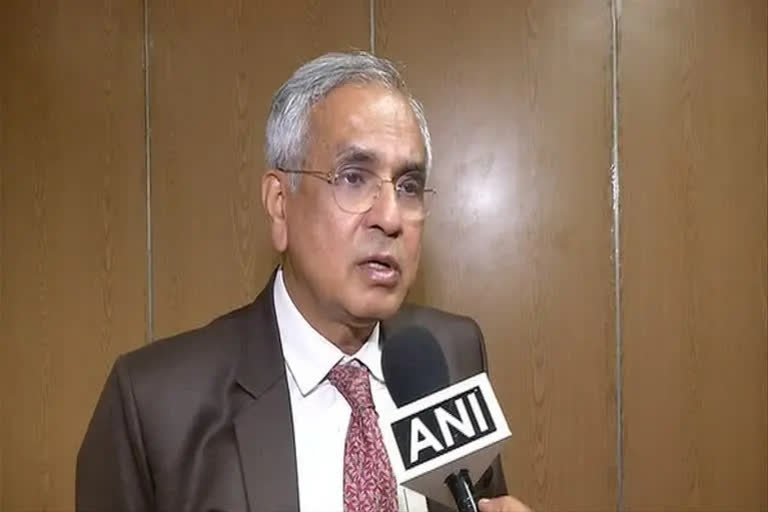New Delhi: India will still grow at 6-7 per cent in the next 2023-24 fiscal even as the economy may be affected by uncertain global conditions, former Niti Aayog Vice-Chairman Rajiv Kumar has said amid growing fears of the world slipping into a recession. Kumar further said there is a synchronized downturn in the US, Europe, Japan and also in China and that could take the global economy into a recession in the coming months.
"Thankfully, there is no such prospect of recession in India, because although our growth may be negatively affected by the global conditions, we will still manage to grow at 6-7 per cent in 2023-24," he told PTI in an interview. The World Bank on October 6 projected a 6.5 per cent growth rate for the Indian economy for 2022-23, a drop of one percentage point from its June 2022 projections.
It is citing the deteriorating international environment, while IMF projected a growth rate of 6.8 per cent in 2022 as compared to 8.7 per cent in 2021 for India. IMF chief Kristalina Georgieva has said the global economy is moving from a world of relative predictability to one of greater uncertainty.
Replying to a question on high inflation, Kumar said retail inflation will probably be in the range of 6-7 per cent for some more time."After that, my estimate is that it should begin to peak and then come down," he said. Kumar added that depends a lot on global oil prices as it can continue to rise because of the continued conflict in Ukraine.
"But otherwise domestic drivers of inflation will cool down," he noted. Indicating easing of the price situation, retail inflation moderated to 6.7 per cent in October while the wholesale price index fell to a 19-month low mainly on account of subdued rates of food items. The central bank is mandated to keep inflation at 4 per cent with 2 per cent of upside and downside margins.
Asked about the impact of a weakening Indian rupee on the common man, the former Niti Aayog vice chairman said the common Indian does not use a lot of imported goods or services in their consumption basket. According to Kumar, the rupee which is near its real value is much better for the economy than the appreciated rupee and depreciated rupee doesn't pose many downside risks.
The rupee depreciated 6 paise to close at 81.74 against the US dollar on Friday. On India's widening trade deficit, Kumar said with the negative growth of exports in October, it is clear that the country needs a real policy focus on this area on how to expand its exports of both goods and services.
"We need to now formulate state-specific export promotion policies. Because to have one single export promotion policy for the whole country does not make sense," he said. Elaborating further, he said that like Punjab is a double landlocked state and Tamil Nadu is a coastal state, and it has centuries of trading experience. "So, to have the same policies of both those states, for example, is not relevant," he emphasised.
India's exports entered negative territory after a gap of about two years, declining sharply by 16.65 per cent to USD 29.78 billion in October, mainly due to global demand slowdown, even as the trade deficit widened to USD 26.91 billion. Imports during the month under review rose by about 6 per cent to USD 56.69 billion on account of increase in the inbound shipments of crude oil and certain raw materials such as cotton, fertiliser and machinery.
Responding to a question on some states switching to the old pension scheme (OPS), Kumar said, "That's a backward step. and I don't think that should be taken." He opined that it is being advocated by some opposition parties because of populist measures. "I think the Indian economy, the Indian working class, Indian middle class is maturing and can handle their own pension funds and take advantage of the new pension scheme, which offers much more choices than the old pension scheme," Kumar said. Punjab cabinet on Friday approved the reimplementation of the old pension scheme, which was discontinued in 2004. (PTI)
(This story has not been edited by ETV Bharat and is auto-generated from a syndicated feed.)



